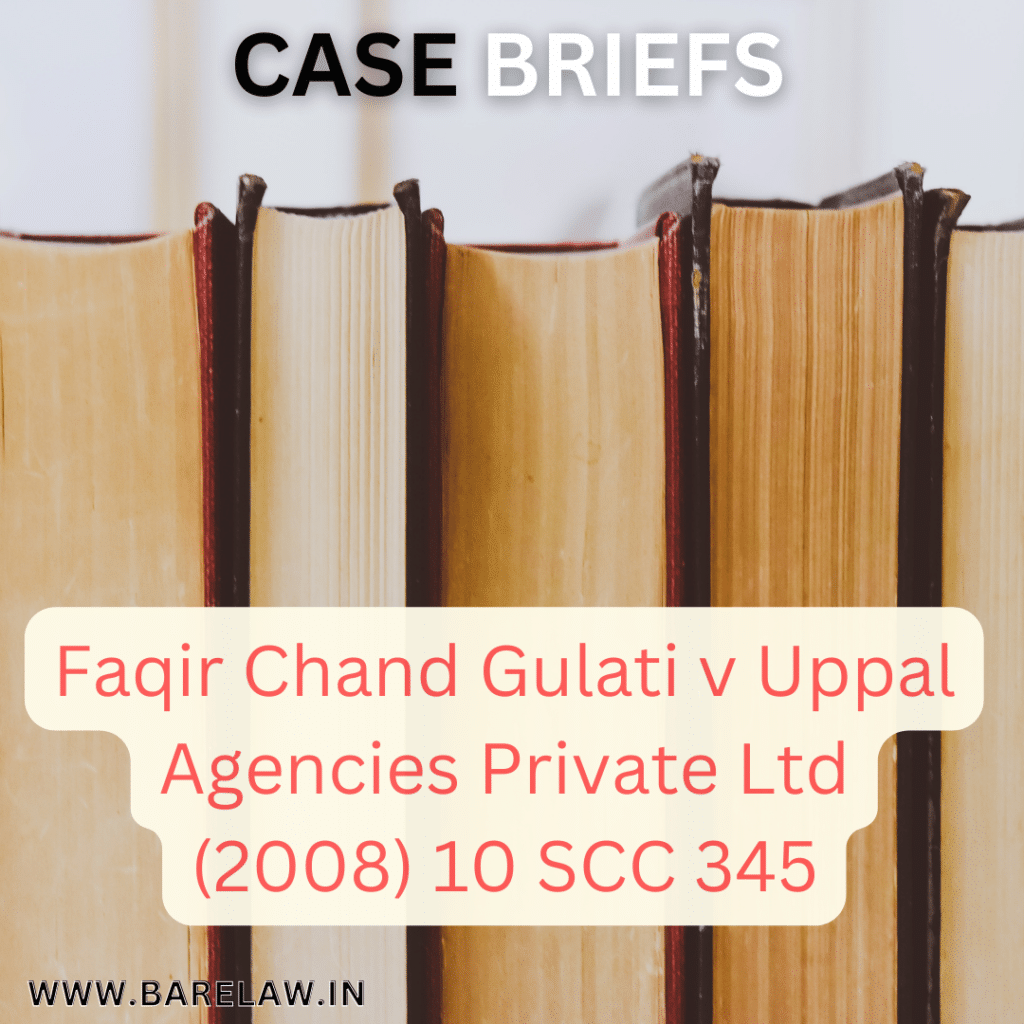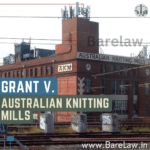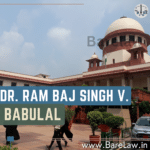
Faqir Chand Gulati v Uppal Agencies Private Ltd (2008) 10 SCC 345
| Case Name | Faqir Chand Gulati v Uppal Agencies Private Ltd. |
| Citation | (2008) 10 SCC 345 |
| Court | Supreme Court of India |
| Judges | B.N. Agrawal and G.S. Singhvi |
| Decided On | August 29, 2008 |
Brief Facts and Procedural History:
Uppal Agencies Private Limited was a registered company engaged in the business of manufacturing and exporting readymade garments. In the course of its business, the company purchased a consignment of goods from the plaintiff, Faqir Chand Gulati, and issued a cheque in payment. However, the cheque was dishonored on presentation to the bank, and the plaintiff filed a criminal complaint against the company under Section 138 of the Negotiable Instruments Act, 1881.
The company argued that the cheque was issued by its Director, who was not authorized to do so, and that the plaintiff had knowledge of this fact. The trial court convicted the company, but the conviction was set aside on appeal by the High Court. The plaintiff then appealed to the Supreme Court.
Issues before the Court:
The main issue before the Supreme Court was whether the Director of the company who issued the cheque was authorized to do so, and whether the plaintiff had knowledge of any lack of authorization.
Judgment:
The Supreme Court held that the Director of the company who issued the cheque was not authorized to do so, as the company’s Articles of Association required that cheques be signed by two Directors or one Director and the company’s Secretary.
However, the Court also held that the plaintiff had no knowledge of this fact, as the Director had held himself out as being authorized to issue the cheque, and the plaintiff had no reason to doubt his authority.
The Court noted that the purpose of Section 138 of the Negotiable Instruments Act was to ensure that cheques are honored when presented, and that this objective would be defeated if the drawer of a cheque could escape liability by claiming lack of authorization. However, the Court also held that the drawer of a cheque could not be held liable if the payee had knowledge of the lack of authorization.
In the present case, the Court held that the company was liable under Section 138 of the Negotiable Instruments Act, as it had issued a cheque that was dishonored on presentation. The Court directed the company to pay the amount due to the plaintiff, along with interest and costs.
The appeal was accordingly allowed.
Conclusion:
The Supreme Court, in this case, clarified the position of law regarding liability for dishonored cheques issued without proper authorization. The Court held that the drawer of a cheque would be liable under Section 138 of the Negotiable Instruments Act, even if he claimed lack of authorization, unless the payee had knowledge of the lack of authorization. In this case, the Court found that the company was liable as it had issued a cheque that was dishonored, and the plaintiff had no knowledge of any lack of authorization.





